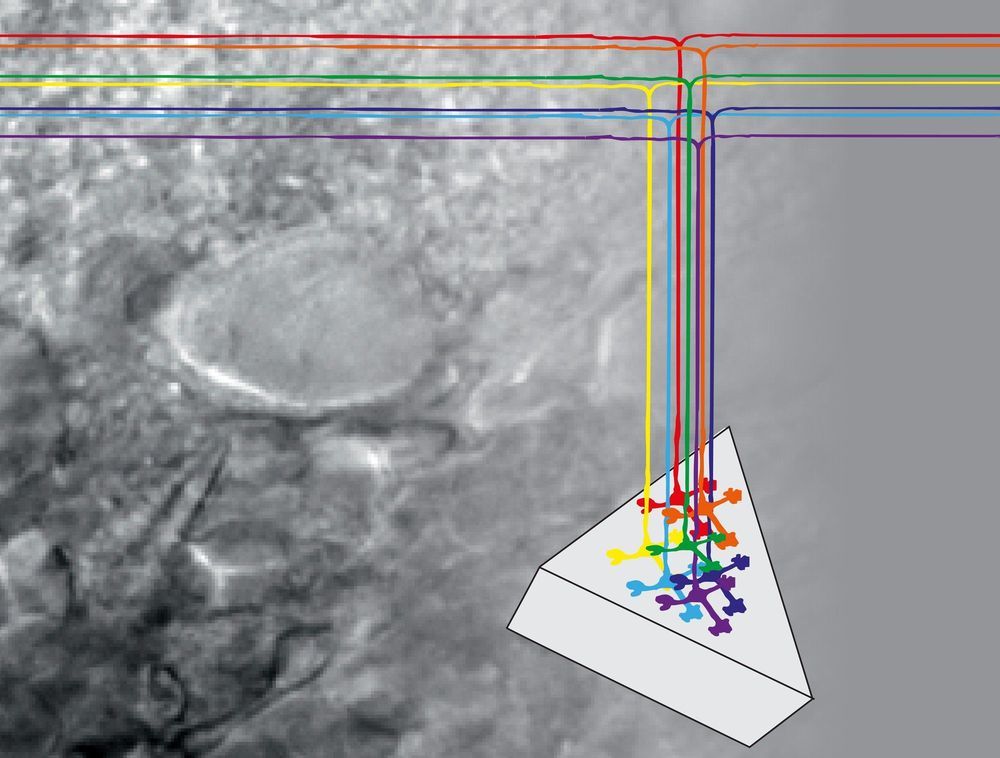Autonomous delivery robots join the fight against the #coronavirus epidemic in Wuhan, China.
Get the latest international news and world events from around the world.

Could the Coronavirus make China Stronger than Ever? 10 Trends that Indicate it Will
Every crisis is an opportunity. With everyone staying home, this is the perfect opportunity for e-commerce, e-learning, online jobs, and big tech to expand. This is the beginning of a huge tech revolution. 2020 will be the techade (technology decade).
The virus is hitting China’s economy hard, but this is likely only temporary. China’s immune system is fighting back — building hospitals in record time, completely locking down a city and most importantly the entire nation uniting as one voice of support and solidarity.
Mario Cavolo called out the global response to the Coronavirus in his post “Something’s not right here folks” which originally went viral on LinkedIn and then subsequently all over Chinese social media. He compares the media response to Coronavirus with the H1N1 outbreak in the US, saying, “it’s not a conspiracy, it’s just a tragedy,” and “this vicious, political, xenophobic racist attacks and smearing of all things China needs to stop.”
What doesn’t break you only makes you stronger, and the Chinese people are resilient and will find ways to rise out of this crisis, likely coming back even stronger than before. How long that will take no-one yet knows, but the Chinese spirit is not even close to being broken, and we’ve seen how Chinese ingenuity in a time of crisis has led to entirely new operating models.



Plastic-Eating Microbes to the Rescue?
Circa 2019
Nature breaks everything down—eventually. It’s time to accelerate the process, by engineering enzymes or microbes to chop plastic polymers into bits.

Interventions for pain: Finding connections at the surface
Like buoys bobbing on the ocean, many receptors float on the surface of a cell’s membrane with a part sticking above the water and another underwater, inside the cell’s cytoplasm. But for cells to function, these receptors must be docked at specific regions of the cell. Most research has focused on the ‘underwater’ portions. That’s where the cell’s molecular machines swarm and interact with a receptor’s underwater tails, with those interactions then fueling signals that dive deep into the nucleus, changing the cell’s course.
New work by a team of Thomas Jefferson University researchers reveals new activity above the surface, in brain-cell receptors that govern learning and chronic pain. In the study, the authors show that the ‘above water’ portion of proteins can help dock the proteins at synapses, where neurons mediate flow of information throughout the brain. This discovery opens the possibility of using this docking site as a target to develop treatments for chronic pain and other diseases more effectively. The study was published January 29th in Nature Communications.
“The extracellular spaces — the parts ‘above the water’ — have been largely overlooked,” says senior author Matthew Dalva, PhD, professor and vice chair of the Department of Neuroscience and director of the Jefferson Synaptic Biology Center in the Vickie & Jack Institute for Neuroscience — Jefferson Health. Dr. Dalva and his team looked at the NMDAR receptor on brain cells and pinpointed the spot where this receptor interacts with a neighbor to initiate signaling. “When trying to develop new therapy, finding the bullseye is half the problem,” says Dr. Dalva.
This solar telescope just released its first close-up video of the Sun — and it’s stunning
Astronomers using the new Daniel K. Inouye Solar Telescope in Hawaii have released their first public images of the Sun, and they are the most detailed images of our parent star ever taken. Images from the next-generation National Science Foundation (NSF) solar observatory reveal details on the surface measuring just 30 kilometers (18 miles) in diameter.
The new four-meter (157 inch) instrument (the largest solar telescope in the world) recorded images and video of turbulent plasma on the surface of the Sun, providing an unprecedented level of detail for solar researchers.

Neuroprosthetics: Medicine of the future
Neuroprosthesis is the process of using direct electric stimulation to enable proper functioning of the nervous system. Neuroprosthetic devices supplements the input or the output signals to the neural system, enabling the individual to carry out proper functioning and physical activities. Some of the purposes which involve the use of neuroprosthetics include, techniques for bladder and bowel control, deep brain stimulation, and restoration of mobility and respiration to paralyzed individuals.
Get PDF sample copy of study @ http://bit.ly/39hTnku
Brain disorders exhibits a considerable social and economic burden in Europe. According to WHO survey, brain disorders are responsible for 35% of Europe’s total disease burden. This burden is increasing due to increasing number of aging population in Europe, and requires a considerable attention to address the treatment issues as all the cases does not respond to medication therapy.